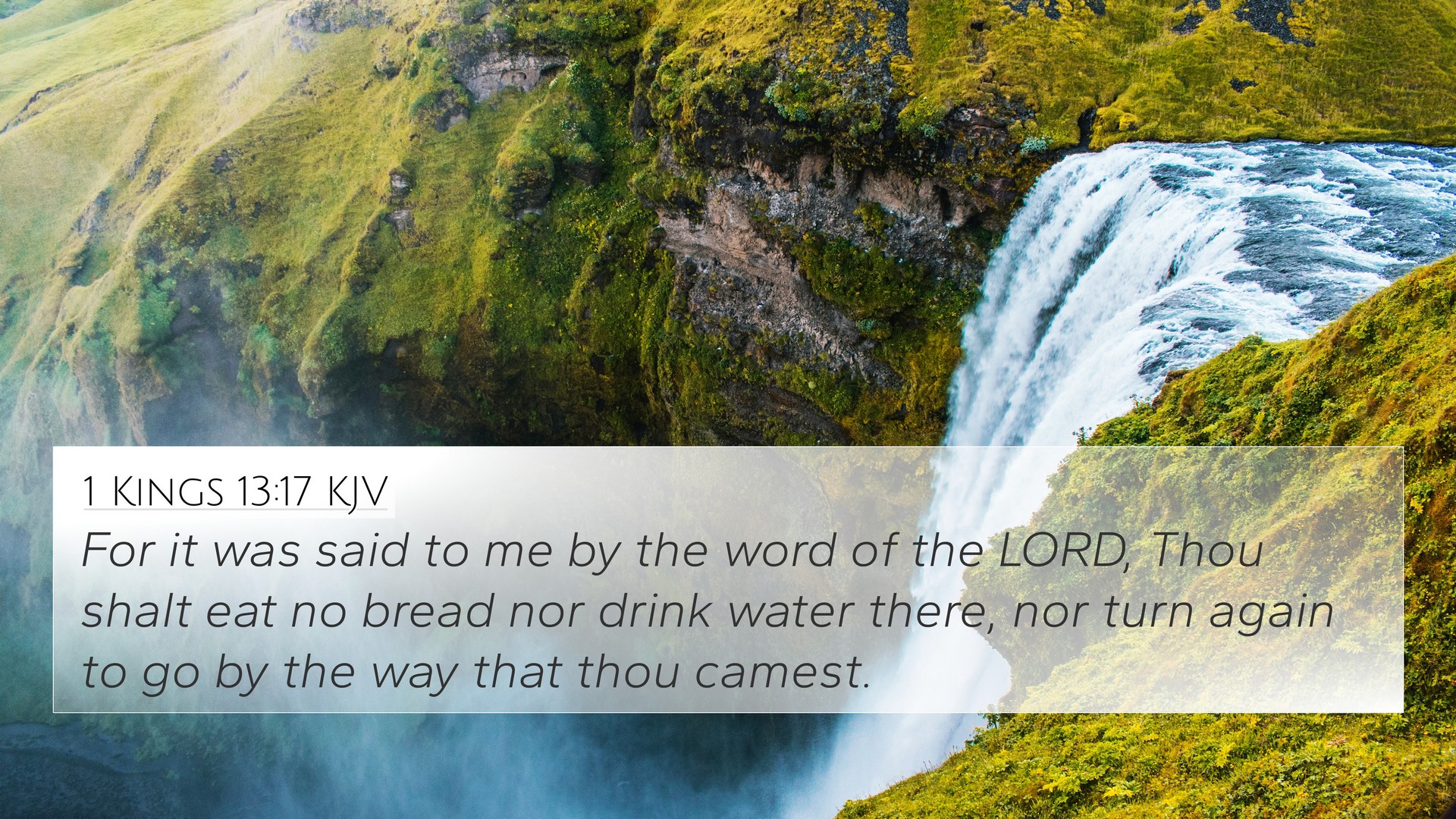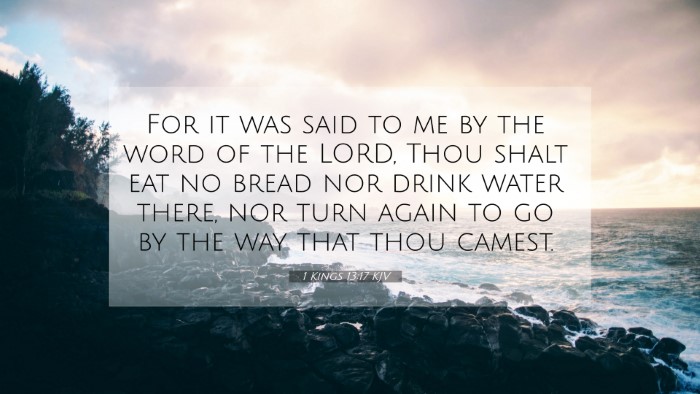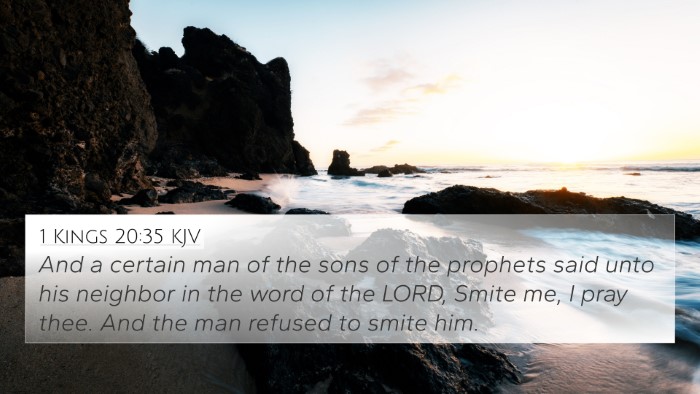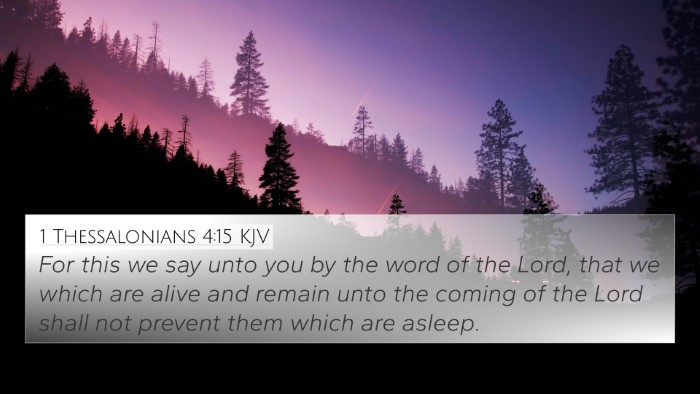Understanding 1 Kings 13:17
Verse: "For it was said to me by the word of the Lord, You shall not eat bread nor drink water there, nor return by the way that you came."
Summary of the Verse Meaning
This verse captures a divine command given to a prophet, emphasizing the importance of obedience to God's instructions. The prohibition against eating and drinking represents not only literal directives but also a broader spiritual principle regarding maintaining fidelity to God's word and mission.
Insights from Public Domain Commentaries
Matthew Henry's Commentary
Matthew Henry highlights the critical nature of divine instructions in the life of a believer. He notes that the prophet's disobedience in not heeding God's word set him on a path of destruction. The restriction on eating and drinking serves as a reminder of the seriousness with which God expects His commands to be followed. Obedience is not merely about actions but is linked to the deeper relationship with God.
Albert Barnes' Notes
Barnes points out that the specific command given to the prophet underscores the unique situations in which God requires particular forms of obedience. He draws attention to the phrase “by the way that you came,” suggesting that the path of repentance often leads us back to where we began, and there's wisdom in keeping to the route defined by God. He emphasizes the need for the believer to remain steadfast in God’s directives amid temptations that might lead us astray.
Adam Clarke's Commentary
Adam Clarke expounds on the nature of prophetic obedience, illustrating that this directive was critical to the mission entrusted to the prophet. Clarke emphasizes that the instruction was not arbitrary but rooted in the broader narrative of God's covenant with His people. He also suggests that the refusal to partake of food or drink was symbolic of spiritual purity and the necessity for focus when executing God’s will.
Related Bible Cross References
- 2 Corinthians 6:17: Encourages separation from worldly practices, aligning with the idea of obedience to God's law.
- John 4:34: Jesus speaks of His food being the will of the Father, resonating with the theme of fulfilling God's commands over physical needs.
- Romans 12:2: Calls believers to not conform to the patterns of this world, which enhances the message of following divine instructions.
- Matthew 4:4: Jesus responds to temptation by emphasizing that man shall not live by bread alone, but by God's word.
- Jeremiah 29:11: God has plans for His people, which require adherence to His will, similar to the emphasis in 1 Kings 13:17.
- Ezekiel 3:17: Proclaims the responsibility of the prophet to warn, emphasizing the weight of God's commands.
- James 1:22: Exhorts believers to be doers of the word, which resonates with the prophet's need for obedience.
Connecting Themes
In analyzing 1 Kings 13:17, we can see several thematic connections reflected in both the Old and New Testaments:
- The idea of divine commandments and the need for obedience, illustrated in various scriptures including Exodus 19:5 and Deuteronomy 5:33.
- The concept of separation from worldly influences, akin to 1 Peter 2:9 where believers are called a holy nation.
- God's guidance being paramount, as shown in Proverbs 3:5-6, emphasizing trust in God’s path.
- Reflection on the prophetic role and the responsibilities entailed, seen in Amos 3:7 where God reveals His plans to the prophets.
Conclusion
The instruction given in 1 Kings 13:17 serves as a poignant reminder of the importance of obeying God's commands. The message stands as a guide for all believers, highlighting that our relationship with God hinges upon our adherence to His word and directives. In exploring the connections through cross-referencing biblical texts, we see a rich tapestry of theme and instruction relevant for the faithful today. Such biblical insights encourage deeper examination through tools like a Bible concordance or cross-reference guide, promoting spiritual growth and understanding.





